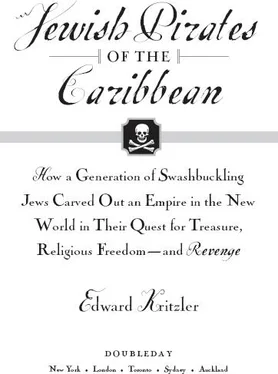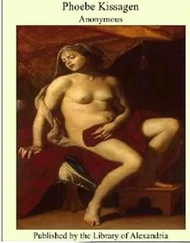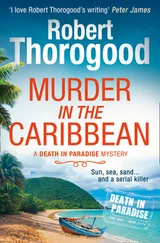Edward Kritzler - Jewish Pirates of the Caribbean
Здесь есть возможность читать онлайн «Edward Kritzler - Jewish Pirates of the Caribbean» весь текст электронной книги совершенно бесплатно (целиком полную версию без сокращений). В некоторых случаях можно слушать аудио, скачать через торрент в формате fb2 и присутствует краткое содержание. Год выпуска: 2008, ISBN: 2008, Издательство: Knopf Doubleday Publishing Group, Жанр: Старинная литература, на английском языке. Описание произведения, (предисловие) а так же отзывы посетителей доступны на портале библиотеки ЛибКат.
- Название:Jewish Pirates of the Caribbean
- Автор:
- Издательство:Knopf Doubleday Publishing Group
- Жанр:
- Год:2008
- ISBN:9780385528368
- Рейтинг книги:3 / 5. Голосов: 1
-
Избранное:Добавить в избранное
- Отзывы:
-
Ваша оценка:
- 60
- 1
- 2
- 3
- 4
- 5
Jewish Pirates of the Caribbean: краткое содержание, описание и аннотация
Предлагаем к чтению аннотацию, описание, краткое содержание или предисловие (зависит от того, что написал сам автор книги «Jewish Pirates of the Caribbean»). Если вы не нашли необходимую информацию о книге — напишите в комментариях, мы постараемся отыскать её.
Jewish Pirates of the Caribbean — читать онлайн бесплатно полную книгу (весь текст) целиком
Ниже представлен текст книги, разбитый по страницам. Система сохранения места последней прочитанной страницы, позволяет с удобством читать онлайн бесплатно книгу «Jewish Pirates of the Caribbean», без необходимости каждый раз заново искать на чём Вы остановились. Поставьте закладку, и сможете в любой момент перейти на страницу, на которой закончили чтение.
Интервал:
Закладка:
Long before Spain was Spain, Jews were living there. King Solomon’s trading post (1000 B.C.) developed over the millennium to become Sephard, a strategic outpost of the Roman Empire. It was there, in the first century A.D., that Emperor Titus, after conquering Israel and burning the Temple, exiled thousands of Jews. Although the Jews of Sephard flourished, they were always tenants. The Visigoths who replaced the Romans made it illegal for them to own land, and Spain’s subsequent rulers, the Vandals, Moors, and Catholics, found it expedient to continue the ban. Despite this and other restrictions, the tribe of Moses grew and prospered.
In Spain’s feudal society, Jews were an educated elite, a merchant class also respected as physicians and financiers. At the end of the fourteenth century, after some 1500 years of residence, the 500,000 Jews of Sephard (half the Jews of Europe) represented the oldest and largest Jewish community outside Palestine. Their leaders boasted lineage to King David and considered themselves the aristocracy of Jewry. These were halcyon days for a people who were unwelcome in most of Europe. But their very prosperity and superior lifestyle were resented by an uneducated mass whose all-consuming religious beliefs could be inflamed by virulent anti-Semitism.
Ferrant Martínez, a friar in Seville, provided the spark. Following a frenzied sermon in which he accused Jews of everything from causing the Black Plague to killing Christian children and drinking their blood, he incited the crowd to rise up and destroy this accursed race. Descending on Seville’s Jewish quarter, the rabble slaughtered four thousand men, women, and children. What is known in Jewish history as the Massacre of 1391 had commenced. Pogroms spread from city to city. The mob’s admonition “Convert or die” resulted in 100,000 dead Jews, and 100,000 converts for Jesus.
After a bloody year, peace was gradually restored. Spain’s 300,000 remaining Jews came forth from hiding places and reconstructed their lives. Those who remained faithful continued to live as Jews but under a host of restrictions. But the 100,000 converted Jews, freed from religious bondage, rose over the next century to positions of power that had been denied them as Jews. Called conversos, or New Christians, to distinguish them from the dominant “Old” Christians, they achieved major positions in government, the army, and universities, and married into the highest nobility. They were prominent at court and in the hierarchy of the Church. However, conversion by coercion rather than conviction had an unforeseen consequence. Forced baptism had brought infidels into the Church, but in doing so, created heretics within.
In the last decades of the fifteenth century, there began what came to be called the Holy Terror. Queen Isabella vowed she would root out all heretics from her kingdom once the Catholic reconquest of Spain from the Moors was complete. Meanwhile, she would begin by ferreting out heretics in Seville, a city known for Jews pretending to be Christians. Her means was the auto-da-fé (act of faith), the church’s idea of Judgment Day on earth, with a Grand Inquisitor playing God. In 1482, Isabella gave that role to her confessor, Tomás de Torquemada. In the course of his eighteen-year reign, the former Dominican friar personally condemned nine thousand Jews to the stake at the quemadero (burning ground) outside the city walls. He also exhumed the bodies of seven thousand dead heretics and burned their remains. (Whenever Torquemada appeared in public, he was accompanied by fifty agents on horseback and two hundred armed guards.)
Ten years later, on the very day Columbus set sail, Spain’s monarchs banished her Jews to purify and thereby unite their nation. Jews settled everywhere they were permitted and, disguised as Portuguese New Christians, where they weren’t. Along with other pioneers in the far-off New World, they carved out a niche for themselves, living possibly the most original experience the world has ever known. They thought themselves safe, but the white-hooded Inquisitors soon followed. In the sixteenth and seventeenth centuries, thousands of New World conversos were arrested, tortured, and tried. Found guilty, they saw their wealth confiscated, and they were first flogged, then imprisoned, strangled, burned, or condemned either to work in the salt mines of Venezuela or to row galley ships across the Pacific, a sentence from which none returned.
Inquisitors were thorough in their questioning of heretics, and the trial transcripts offer an intimate look into the condemned Judaizers’ secret lives. During the day, they went about as exemplary Catholics, attended Mass, went to confession, and had their children baptized. But on certain nights they met secretly in one another’s homes, reverted to Hebrew names, and read from the Torah. History would come to call these secret Jews Marranos, meaning pigs. Though this term has generally lost its pejorative meaning, I prefer to call them what they called themselves in the sanctity of their homes: Jews.
Each New World colony had an underground community of Jews known only to one another and their brethren in other colonies. Together, conversos in the New World dominated commerce. In the sixteenth century, when the known world doubled in size and international trade became big business, they established a trade network that spanned the globe.
• In Lima, Peru, the Inquisition reported: “The city is thick with [Jews]. Everything goes through their hands…from brocade to sackcloth, diamonds to cumin seeds…to the most precious pearl and the vilest Guinea black.”
• In Potosí, Bolivia, with its silver mountain, the Inquisitor reported the silver trade “is almost exclusively in the hands of crypto Jews.”
• In Port Royal, Jamaica, English merchants protested, “Descendants of the Crucifiers of Blessed Jesus eat us and our children out of all trade. [They] purchase the entire cargo of a trading ship, divide it according to paid shares, and distribute the goods through agents in each of the colonies.”
In concert with their fellow Jews, scattered worldwide by the Sephardic Diaspora, they formed a global tribe of inside traders, bonded by heritage, language, and a hatred for Spain. New World Jews traded with covert brethren on the Iberian Peninsula, and later sold directly to Jews in Amsterdam and London, often in ships leased from Jewish shipowners in Amsterdam and Antwerp.
Dealing with the People of the Book was very attractive. Their innovative letters of exchange and credit made capital portable. For instance, a shipping merchant trading in pirate waters doubled his risks if he returned with gold. On the other hand, if he could leave the gold and return instead with a draft on a Jewish banking house, he was safe. As a link in a world trade network at the onset of international trade, Jewish merchants were the world’s most coveted capitalists. The historian of capitalism Fernand Braudel writes: “It has too quickly been assumed Jews did not invent capitalism; certainly they participated wholeheartedly in its beginnings…It is not unrealistic to refer to…the 17th century as the ‘age’ of great Jewish merchants.” 1
Piracy was another lucrative area of commerce in which these Jewish merchants specialized. Questions of morality did not apply. It was the normal business of every nation to license mercenaries to seize and rob enemy ships and share the proceeds. The only difference with the Jews was they did not have to license their freebooters. In coded correspondence with fellow merchants in other colonies, they were able to ascertain what ship was sailing when; its cargo, route, and destination; and what its captain may have secreted in his cabin. Thus informed, Jewish merchants were the brains behind the brawn—financing, advising, and sometimes leading the Caribbean’s emerging fighting force: a ragtag crew of misfits of every nation that coalesced as the dreaded pirates of the Spanish Main.
Читать дальшеИнтервал:
Закладка:
Похожие книги на «Jewish Pirates of the Caribbean»
Представляем Вашему вниманию похожие книги на «Jewish Pirates of the Caribbean» списком для выбора. Мы отобрали схожую по названию и смыслу литературу в надежде предоставить читателям больше вариантов отыскать новые, интересные, ещё непрочитанные произведения.
Обсуждение, отзывы о книге «Jewish Pirates of the Caribbean» и просто собственные мнения читателей. Оставьте ваши комментарии, напишите, что Вы думаете о произведении, его смысле или главных героях. Укажите что конкретно понравилось, а что нет, и почему Вы так считаете.












